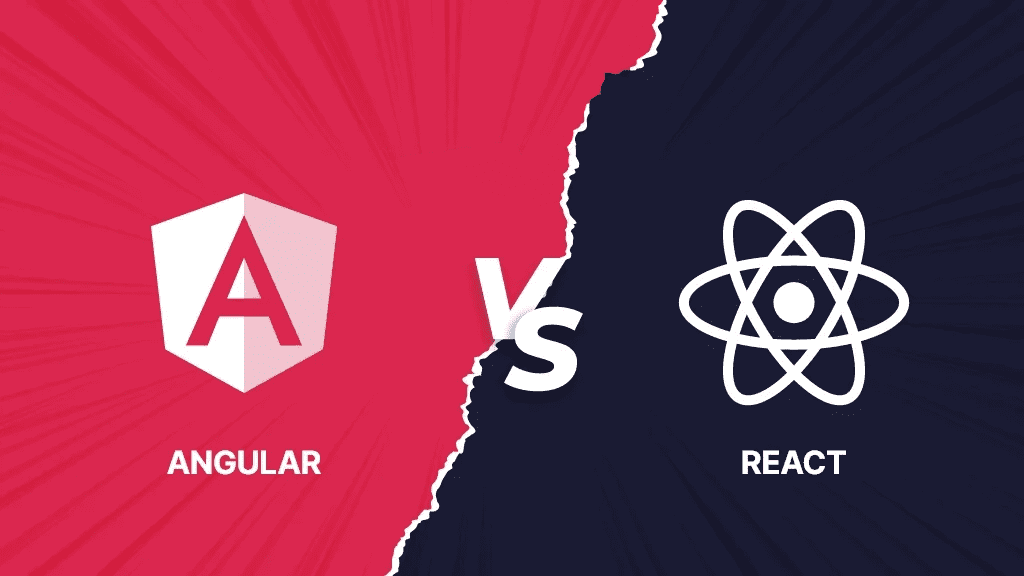1. What is Angular?
- Angular is a comprehensive TypeScript-based framework for building dynamic, single-page applications (SPAs) and scalable web platforms.
- Built by Google, it offers a structured approach with built-in features like routing, dependency injection, and two-way data binding, streamlining development and promoting code maintainability.
1a. Why Use Angular?
- Structure & Scalability: Ideal for complex, enterprise-level applications requiring well-defined architecture and maintainability for large teams.
- Built-in Features: Rich ecosystem of tools and features reduces the need for additional libraries, simplifying development.
- TypeScript Integration: Enhances type safety, improves code readability, and catches errors early, leading to more robust applications.
- Large Community: Active community provides extensive support and resources.
1b. Who Uses Angular?
- Google, Microsoft, BMW, Upwork, Forbes, and many more enterprise-level organizations.
1c. Key Features of Angular:
- Components: Modular UI building blocks for reusability and maintainability.
- Directives: Add behavior and interactivity to components.
- Services: Share data and functionality across components.
- Routing: Manages navigation between different views in an SPA.
- Dependency Injection: Automatic injection of dependencies, simplifying component creation and testing.
- Two-way Data Binding: Simplifies data flow management, but can introduce complexity in large applications.
2. What is React?
- React is a flexible JavaScript library primarily focused on building dynamic and interactive user interfaces (UIs).
- Its component-based architecture allows for modularity and reusability, making UI development efficient.
- Unlike Angular, React doesn't enforce a specific structure, offering more freedom and customization.
2a. Why Use React?
- Performance & Flexibility: Virtual DOM and component-based architecture optimize rendering for faster and more responsive UIs.
- Ease of Learning: Simpler initial learning curve compared to Angular, especially for JavaScript developers.
- Large Community & Ecosystem: Extensive community and vast ecosystem of libraries and tools enhance development flexibility.
2b. Who Uses React?
- Facebook, Netflix, Airbnb, Uber, PayPal, and many more leading tech companies.
2c. Key Features of React:
- Components: Reusable building blocks for UI elements.
- JSX: Syntax extension for writing HTML-like structures within JavaScript.
- Virtual DOM: Efficiently updates the real DOM, minimizing browser work and improving performance.
- State Management: Requires external libraries like Redux or MobX for complex applications.
- Hooks: Hooks are special functions in React that enable developers to use state and other React features without the need to write class components.
3. Popularity Growth: Angular vs. React JS
- Both React and Angular have seen consistent growth in popularity, with React currently holding the top position in various developer surveys.
- React's popularity is attributed to its ease of learning, flexibility, and large community.
- Angular maintains a strong presence in enterprise-level projects, benefiting from its structured approach and built-in features.
4. Reactjs Vs Angular Performance
- React generally outperforms Angular in initial page load and responsiveness due to its smaller bundle size and virtual DOM.
- Angular's Ahead-of-Time (AOT) compilation can improve performance in specific scenarios.
- Ultimately, performance optimization depends on factors like application complexity, data size, and development practices.
5. Testing in Angular and React JS
- Both frameworks offer comprehensive testing tools and libraries.
- Angular encourages unit and end-to-end testing with built-in features and tools like Karma and Jasmine.
- React relies on external libraries like Jest and React Testing Library for testing components and functionality.
6. Maintainability of Code: Angular vs. React JS
- Angular's structured approach with built-in features and TypeScript integration promotes cleaner code and easier maintenance for large teams.
- React's flexibility can lead to more diverse code styles, requiring stricter coding conventions and linting practices for maintainability.
7. Server Rendering in Angular vs React JS
- Both frameworks support server-side rendering (SSR) for SEO benefits and faster initial page loads.
- Angular offers built-in SSR capabilities, while React requires additional libraries like Next.js or Gatsby.
8. Angular vs React: Advantages and Disadvantages
8a. React Advantages:
- Large talent pool: Due to its popularity, React developers are readily available, potentially reducing hiring costs.
- Hot reload: Enables instant feedback during development, accelerating development cycles.
8b. Disadvantages of React:
- Steeper learning curve for complex applications: Managing state and integrating external libraries can add complexity for larger projects.
- Opinionated tooling: Can require adoption of specific tools and patterns, potentially limiting flexibility.
- Potential for over-engineering: The freedom offered by React can lead to unnecessary complexity if not managed carefully.
8c. Angular Advantages:
- Structured approach: Simplifies development and promotes team collaboration by enforcing consistent coding practices.
- Built-in tooling: Reduces setup time and simplifies common tasks with ready-made tools and functionalities.
- Robust type safety: TypeScript integration catches errors early and improves code maintainability.
- Strong community support: Active community provides extensive resources and assistance for Angular developers.
8d. Disadvantages of Angular:
- Steeper learning curve: Initial learning process can be more challenging compared to React due to its comprehensive framework structure.
- Larger bundle size: Can impact initial page load speeds, especially for complex applications.
- Less flexibility: Opinionated structure might limit customization compared to React, potentially hindering specific project needs.
Conclusion:
Choosing between React and Angular depends on your specific project requirements, team expertise, and desired level of structure and flexibility. For smaller, dynamic UIs and rapid prototyping, React's flexibility and performance might be ideal. For complex, enterprise-level applications with large teams and strict requirements, Angular's structured approach and built-in features could be a better fit. Ultimately, understanding the strengths and weaknesses of each framework will empower you to make the right decision for your project's success.
I hope this comprehensive blog provides valuable insights for your comparison of React and Angular!
Related Articles
- What is React JS? Features, Benefits, and Examples Explained
- Mastering React Hooks: The Comprehensive Guide on Hooks in React JS
- React Environment Setup: A Comprehensive Guide
- React 19 is Now Stable: Learn What's New in React 19
- React 19 UseOptimistic Hook: What is UseOptimistic Hook and Everything You Need to Know
- React 19 Use Hook: What is Use Hook and Everything You Need to Know
- Secure React Applications: Common Vulnerabilities
- Mastering Advanced React Patterns: Higher-Order Components, Render Props, and Custom Hooks
- Mastering State Management in React: A Comprehensive Guide with Redux, Context API, and Zustand
- Learn How to Use TypeScript with React: Benefits and Best Practices
- Learn How to Build an Interactive Map with React and Leaflet
- How to Use Apollo Client with React for GraphQL Integration
- Debugging Memory Leaks in React: Tools, Fixes & Tips
- Why useEffect Runs Twice in React and How to Fix It
Mastering JavaScript Loops: A Guide to Efficient Iteration
Understand GraphQL: Is It a Framework or a Query Language?
About Muhaymin Bin Mehmood
Front-end Developer skilled in the MERN stack, experienced in web and mobile development. Proficient in React.js, Node.js, and Express.js, with a focus on client interactions, sales support, and high-performance applications.

